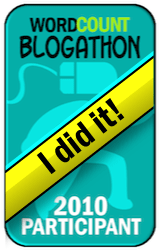Even if you're not a bike rider--avid or otherwise--you can still use the BIKE acrynym to find your own spiritual navigation system.
Remember, we're looking for our:
Best self
Inner strength
Killer instinct
Expressive voice
These are the four ingredients of your spiritual core self--the part of you that knows yourself well enough to be able to handle even the most difficult of circumstances. If you don't know what it means to be your Best self, if you don't know you have enough Inner strength (or how to access it), if you don't trust your Killer instincts, and if you're not comfortable using your Expressive voice, you'll stay stuck in the past. You won't be able to move forward--not from heartbreak, not from anger, not from anything that holds you back. The reason is because you haven't taken the time to get to know what you're really made of on the inside.
We really don't learn this stuff in school, and a lot of times, not at home either.
And don't be confused about the word "spiritual."
BIKE isn't a religion. It's more like AA's 12-step program. And just like the 12 steps, BIKE requires taking personal inventory of yourself. I sometimes refer to the process as my 12-step program reduced to four. That makes it seem easier, but you still have to look deep inside yourself, reveal your flaws, and then figure out how to either accept them or change them to suit your needs.
What BIKE can do for you, once you've discovered your own path to a better you, is keep you from getting lost, help you find your way, and steer back to the best course possible. Notice I didn't say the "right" course. My therapist used to remind me all the time, "We're not judging. There is no right or wrong. There just "is"." So with BIKE, you don't judge your behavior, you just work on improving it. You look back only when it's necessary to move forward.
When your spiritual navigation system is set and ready to go, it means you understand you're following a path that is meant for you, and you alone, and that you won't always have control of where it leads (or sometimes you hand over that control to others by mistake). You know you need to "let go" of that and focus, instead, on that which you can control--namely, how you respond to the events that occur in your life.
Once your mental BIKE is in place, you will know how to respond. It's like working with teenagers, you pick your battles. Not all of them are worth having. This is true of life, in general.
I've given you this assignment before, in some version, but here it is again for the newcomers:
In a journal that you keep just for this, make a checklist of your traits. Write down the traits that you admire about yourself. Write down the traits you wish you didn't have. Include descriptive entries that explain your conclusions. Give examples of times you've used these traits when addressing challenges in your life. Especially consider the times when you knew you were stuck. Then look for patterns of behavior. Is there a pattern or habit that needs revision?
Because this process involves taking time for yourself, you don't have to write down anything right now. Hopefully, you'll be spending a lot of time with yourself as we learn how BIKE can work for you. But if you're not comfortable with the writing part for now--and some people aren't--then think about this while taking a bath, pruning bushes, or riding your bike. Meditate on it. You can write your thoughts down later. There is something about putting thoughts to paper that helps lead to solutions. So make sure, if you don't journal today, at least by a notebook.
I bet you'll soon want to write this all down. As you see your own growth occur, you'll want to do everything possible to see more. But be patient. You're on the road to recovery. Recovery from what, I don't know. That's what you'll discover on the way.
All my best,
Jackie
Sunday, May 4, 2008
Subscribe to:
Post Comments (Atom)












No comments:
Post a Comment